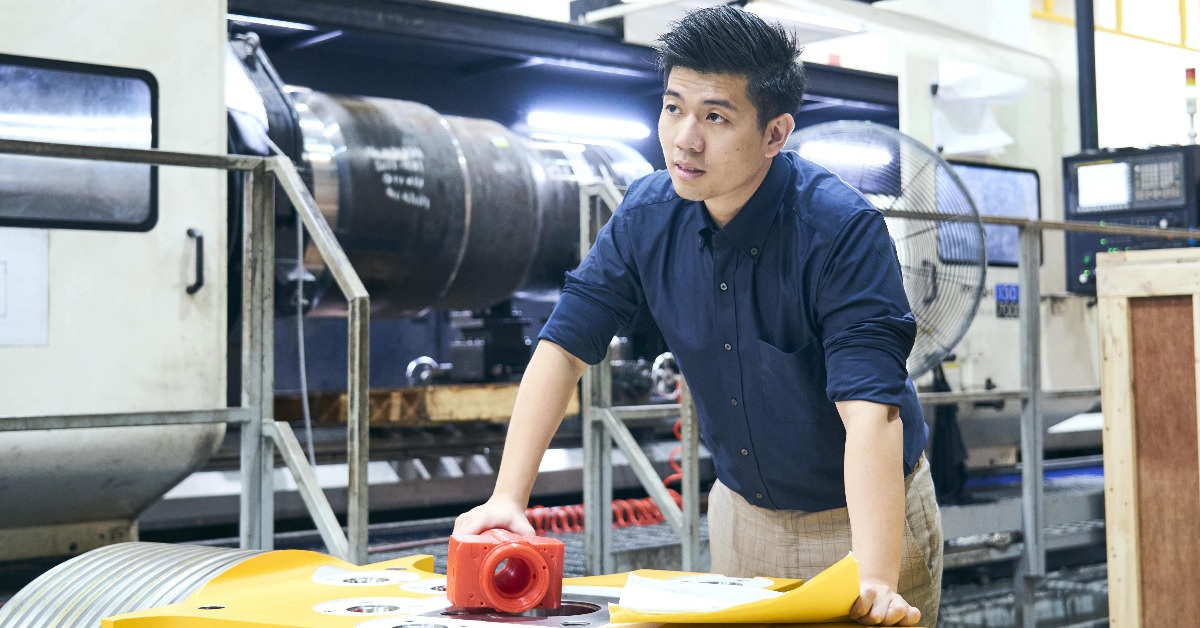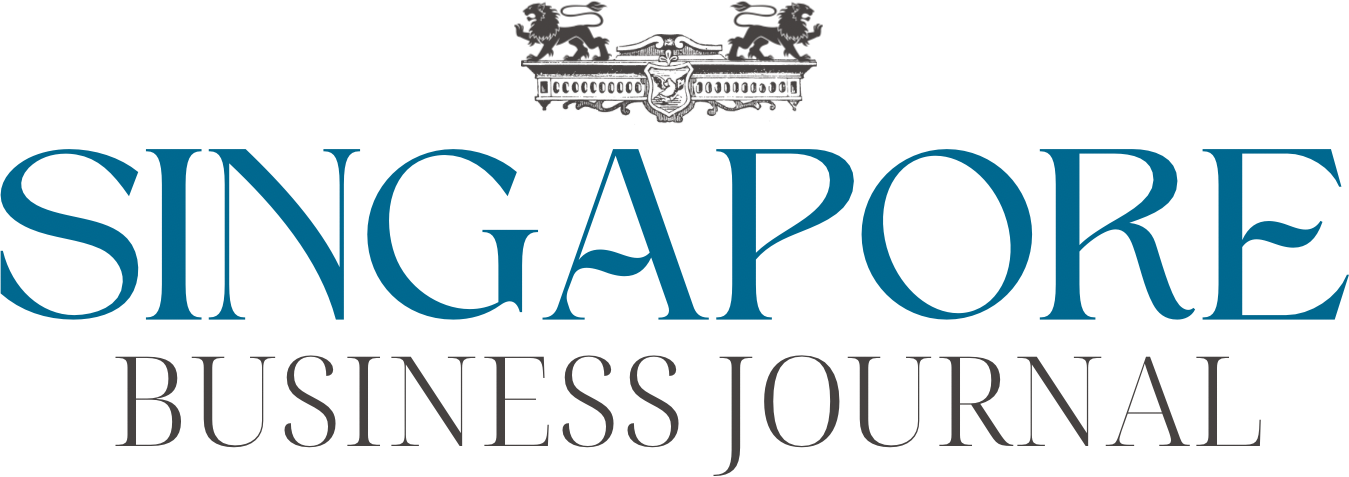Homegrown engineering and manufacturing firm AME International began operations in 1996 with two workers – chairman and managing director Steven Toy, 55, and a welder.
It had set out to build parts for other companies. Today, AME boasts a 170-strong workforce, and has expanded into diverse sectors, from offshore and marine to aerospace with $95 million in revenue last year.
Its secret sauce? The company doesn’t just embrace change – it thrives on it. “You must make changes and investments to keep up with the times,” says executive director Bryan Toy, 29, the founder’s son. “That’s how my father has been able to grow the business to what it is today.”
Inspired by his father, the younger Mr Toy is now spearheading the company’s digitalisation drive to further grow the company.
In 2021, for example, AME was producing large-scale components for its oil and gas customers – but it was doing so inefficiently, he recalls.
Components created in one part of its factory in Joo Koon had to be physically transported to another area for inspection, as the specialised inspection equipment could not be moved. “The transport took time and posed safety concerns,” says the younger Mr Toy.
To solve this issue, the company tapped technical experts with support from Enterprise Singapore’s (EnterpriseSG) Enterprise Development Grant (EDG), and custom-designed an inspection tool that could be retrofitted onto its manufacturing machines.
The trial, which took a year and cost about $100,000, reduced the inspection time for various components by 30 to 60 per cent.
In 2021, Mr Bryan Toy also took part in EnterpriseSG’s Enterprise Leadership for Transformation (ELT) programme.
Armed with learnings, the firm worked with technology vendors and a system integrator to develop a $2 million three-year digitalisation plan. It includes setting up a control room with digital dashboards to coordinate and oversee its work in real time, and collecting data through sensors and software on its machines to pinpoint bottlenecks and wastages.
Mr Bryan Toy estimates that these and other upgrades will increase the company’s productivity by 20 to 30 per cent.
Pursuing transformation
Over the years, the elder Mr Toy has kept a keen eye on promising industries and made strategic moves to expand into them.
Soon after he founded the firm – called AME for Automated Machinery and Equipment – he zeroed in on making parts for machines for the nascent semiconductor sector in Singapore. Loyal customers from the sector helped AME cross $1 million in sales seven years later.
As Singapore’s maritime industry grew, he acquired EDM Engineering, a marine construction business, in 2006, betting that his employees’ technical skills could be put to use in fabricating parts and structures for shipyards. Within a year, he turned the loss-making EDM into a profitable growth engine for AME.
AME’s pivot into the oil and gas industry in 2010 was another calculated move, based on the sector’s global growth.
Even before the firm had landed a customer in the industry, Mr Toy spent about $15 million on machines that make components for oil and gas equipment. He also hired more skilled staff, believing that the infrastructure and expertise would help persuade potential clients to place orders with him.
The investment paid off. AME more than doubled its total revenue from $10 million in 2011 to $25 million in 2015.
It has also progressively expanded its capabilities to offer more services in-house, lowering its costs and benefiting customers.
The younger Mr Toy, who joined the company in 2015, explains: “We used to outsource some niche processes, such as the heat and non-destructive testing of our parts, but found that we had less control over the quality of the work.” They also faced long turnaround times, as their suppliers had to cater to other customers.
“By investing in the machines and training to do the work ourselves, we have been able to get the components to our clients faster.” AME’s services now cover about 80 per cent of their products’ supply chain.
For its next stage of growth, the company plans to focus on acquisitions and partnerships to quickly broaden its customer base and unlock new markets. Such diversification would enable it to minimise the risks of relying on a single sector, and capitalise on opportunities in different industries, says Mr Bryan Toy. “This will make our business stronger holistically,” he adds.
It is also considering setting up sales offices or manufacturing plants overseas. “We already make about 70 to 80 per cent of our revenue from products that are exported regionally, and to the United States, United Kingdom, Brazil and other markets. This could be another way for us to accelerate our growth.”
Shifting gears for growth
When AME International executive director Bryan Toy joined Enterprise Singapore’s (EnterpriseSG) year-long Enterprise Leadership for Transformation (ELT) programme in 2021, a consultant advised him to explore mergers and acquisitions to speed up the company’s growth.
Mr Toy shares: “We went through AME’s history and plans for the future, and (the consultant) noted that we had invested substantially in machinery.
“If we could acquire firms to boost our capabilities and expand into other markets, that would strengthen our company for the future. We were already considering this, and (the consultant) reaffirmed that we are moving in the right direction.”
The ELT programme helps small- and medium-sized enterprises’ (SMEs) leaders develop business growth plans to take their firms to the next level.
Participants attend a practical and modular executive learning course, and 40 hours of one-on-one coaching with consultants and industry experts to craft a plan catered to their firm’s needs and challenges.
After the ELT business coaching sessions last year, AME bought the Singapore-based AT&S group of companies, further diversifying its portfolio. AT&S distributes a wide range of products for different industries such as anchors, wire ropes, lifting and safety equipment.
With the acquisition, AME doubled its revenue from about $40 million in 2021 to $95 million last year.
Mr Toy believes that targeted purchases, together with an ongoing digitalisation programme, will put AME on a sounder footing for decades to come. He urges other firms, especially SMEs, to set aside time and resources to explore longer-term plans.
He says: “Many of us concentrate on improving the day-to-day operations, and rightly so, but we also need to take a step back sometimes and think about how we are going to grow the firm, and maintain or expand our competitive advantage.”




